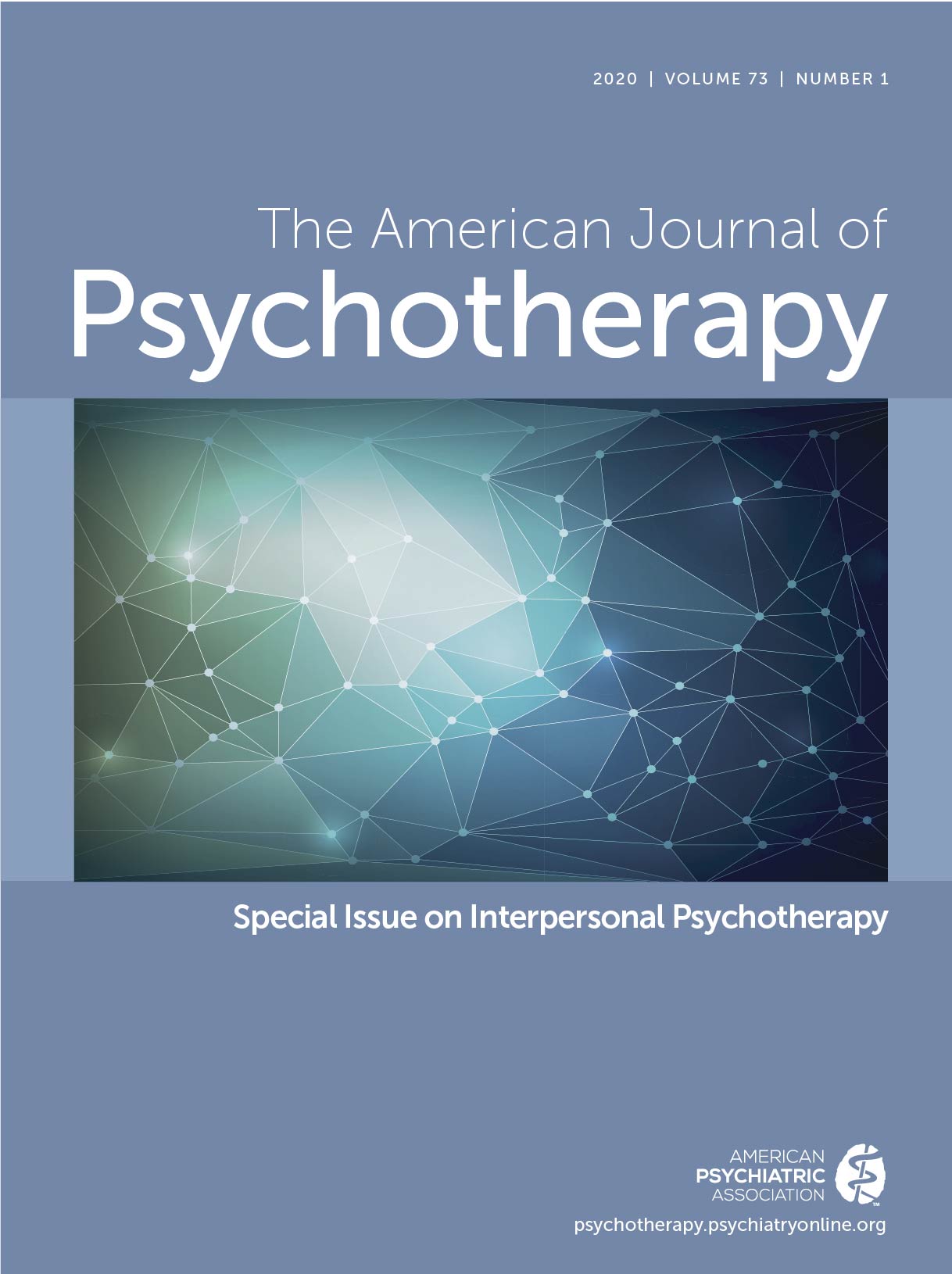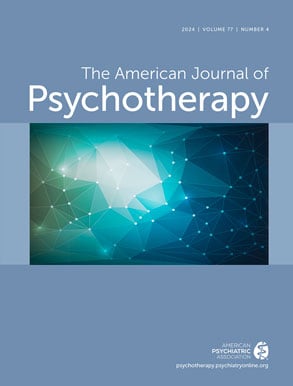In the United States in the 1970s, interpersonal psychotherapy (IPT) was developed by Klerman and colleagues as a treatment for depression, and its original manual was published in 1984 (
1). Almost a half century after its inception, IPT has matured, and it now holds a firm position in the group of evidence-based therapies to treat not only depression but also a number of other psychiatric problems (
2,
3).
The contents of this special issue dedicated to IPT are a testament to the enthusiasm for and ongoing evolution of the treatment. Myrna Weissman, one of IPT’s cofounders, gives a unique personal account of the early development and history of the therapy (
4). She concludes her contribution by emphasizing the importance of continuing to extend IPT’s global reach, given the core significance of interpersonal relationships in all cultures and recognition of the connection between interpersonal relationships and mental health worldwide. However, to stay relevant, IPT must be responsive to changes in the way human beings communicate and interact with each other. In their interesting article, Swartz and Novick (
5) reflect on challenges facing IPT in the digital age, pointing out adaptations required to IPT during an era characterized by widespread use of social media, such as Facebook, Twitter, and Instagram, in lieu of in-person communication.
Interpersonal and social rhythm therapy (IPSRT) is an evidence-based adaptation of IPT for bipolar disorder. Coming full circle, this adaptation now returns “home” in the contribution from Crowe and colleagues (
6), who provide preliminary data that IPSRT may also be effective as a treatment for unipolar depression, which IPT was initially developed to treat. Additionally, Laura Dietz (
7) describes a fascinating IPT-based intervention for preadolescent depression, family-based interpersonal psychotherapy. In her overview, Dietz describes the conceptual foundations underlying this approach, practical aspects of the intervention, and its current empirical status.
The successful adaptation of IPT for the treatment of posttraumatic stress disorder (PTSD) is a recent, important, and welcome change to the IPT landscape (
8). IPT is now an available alternative for patients with PTSD who do not tolerate or respond to exposure-based interventions. Markowitz et al. (
9) present a case report of a patient who was treated for PTSD and explore why IPT works with this population. They propose symptom-specific reflective functioning, a measure of psychological understanding of one’s own symptoms, as a potential mediator of the efficacy of IPT. Hopefully, future studies will permit systematic evaluation of moderators’ and mediators’ influence on patient outcomes in IPT. The need for such studies is illustrated in the article by Lemmens and colleagues (
10), in which they summarize results of a large randomized controlled trial, the first study to investigate the long-term effectiveness of IPT for depression compared with cognitive therapy. The two treatments appeared equally effective, even at a 2-year follow-up. Additionally, the investigators report on differential mediation, which may stimulate further research into mechanisms of change in psychotherapy. Such knowledge may help to further improve the efficacy of these treatments. Finally, Lemmens et al. tested the predictive properties of a machine-learning technique, the Personalized Advantage Index (
11), which may help clinicians and patients, in the process of shared decision making, choose which therapy will likely result in the best outcome. However, as the authors point out, much future work is necessary to bring these techniques to daily practice.
This special issue includes contributions from authors from around the globe, including from the United States, the Netherlands, and New Zealand. The diverse authorship within this issue is a testament to the global reach of IPT but also perhaps a warning sign pointing to continued limits to research funding for psychotherapy research in the United States, as previously pointed out by John Markowitz (
12). Grant applications still seem most successful within a narrow theoretical framework that conceives psychiatric problems primarily as disorders of the brain, an astonishing reality given decades of scientifically and clinically uninformative research resulting from this paradigm (
13) and compelling arguments that a reductionistic approach to psychopathology is a dead end (
14). No one would argue that neuroscience is unimportant; however, psychotherapy necessarily addresses complex aspects of human experience that brain circuits as we currently understand them do not capture. The American Psychiatric Association’s resumed publication of the
American Journal of Psychotherapy in 2018 is a hopeful sign, underscoring the importance of psychotherapy to psychiatry. Publication of this special issue further highlights the importance of IPT to the field, emphasizing how far we have come and the future to which we aspire.
I hope that the readership of the American Journal of Psychotherapy will enjoy these articles just as much as I did during the preparation of this special issue on IPT.

